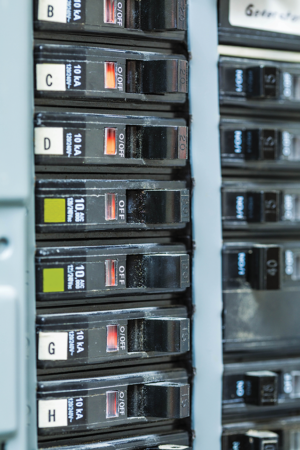Electricity helps run the world, including our homes and businesses. Without electricity, we’d have no access to lighting, our interior spaces may not be heated or cooled effectively, and the computers and other devices we rely on so heavily would not run.
Even though electricity is designed to make people’s lives more convenient, it’s easy to take it for granted and become complacent about the safety needed to use it effectively. The Electrical Safety Foundation International says each year electrical malfunctions account for 35,000 home fires causing more than 1,130 injuries, 500 deaths and $1.4 billion in property damage. Since the average American home was built in 1977, many existing homes of this age and older simply cannot handle modern demand for electricity without modification.
The following are some warning signs that electrical issues could lead to bigger problems:
• Tripping of circuit breakers or blowing of fuses regularly
• Dimming of lights when other devices are in use
• Buzzing sounds from outlets or switches
• Discolored outlets
• Seemingly underpowered appliances
Additional warning signs can include a tingling feeling when an electrical appliance is touched, rubbery smells or an aroma of burning.
Individuals can take certain precautions to ensure electrical safety at home and at work. Here are nine guidelines to follow, courtesy of the National Fire Protect.
1. Have any home you are buying or renting inspected by a qualified private inspector in accordance with local requirements.
2. When electrical work is needed, hire a qualified, licensed electrician.
3. Use only one heat-producing appliance plugged into a receptacle outlet at a time.
4. Do not use extension cords for major appliances like ovens, washers, stoves or microwaves. They should be plugged directly into a wall receptacle outlet.
5. Ground-fault circuit interrupters (GFCIs) should be installed in kitchens, bathrooms, garages, and basements to shut off an electrical circuit when it becomes a shock hazard.
6. Extension cords should only be used temporarily. Have an electrician install more outlets if they are needed.
7. Keep the area around the electric meter clear.
8. Make sure outdoor lights and other fixtures are rated for outdoor use.
9. Label the circuit breakers to understand the different circuits in the home and know which to turn off when electrical work is being conducted.
It doesn’t take much for an electrical issue to become serious and start a fire or cause shocking. Treat all electricity use in a home or business seriously.




